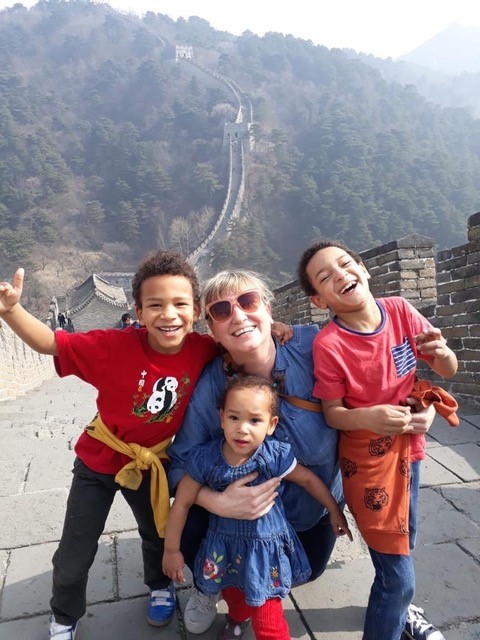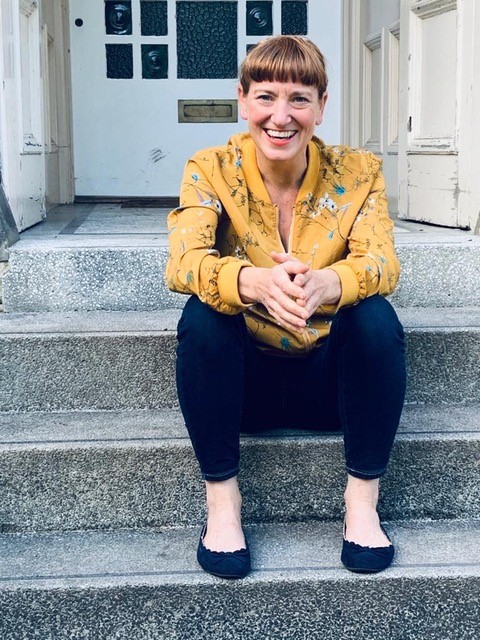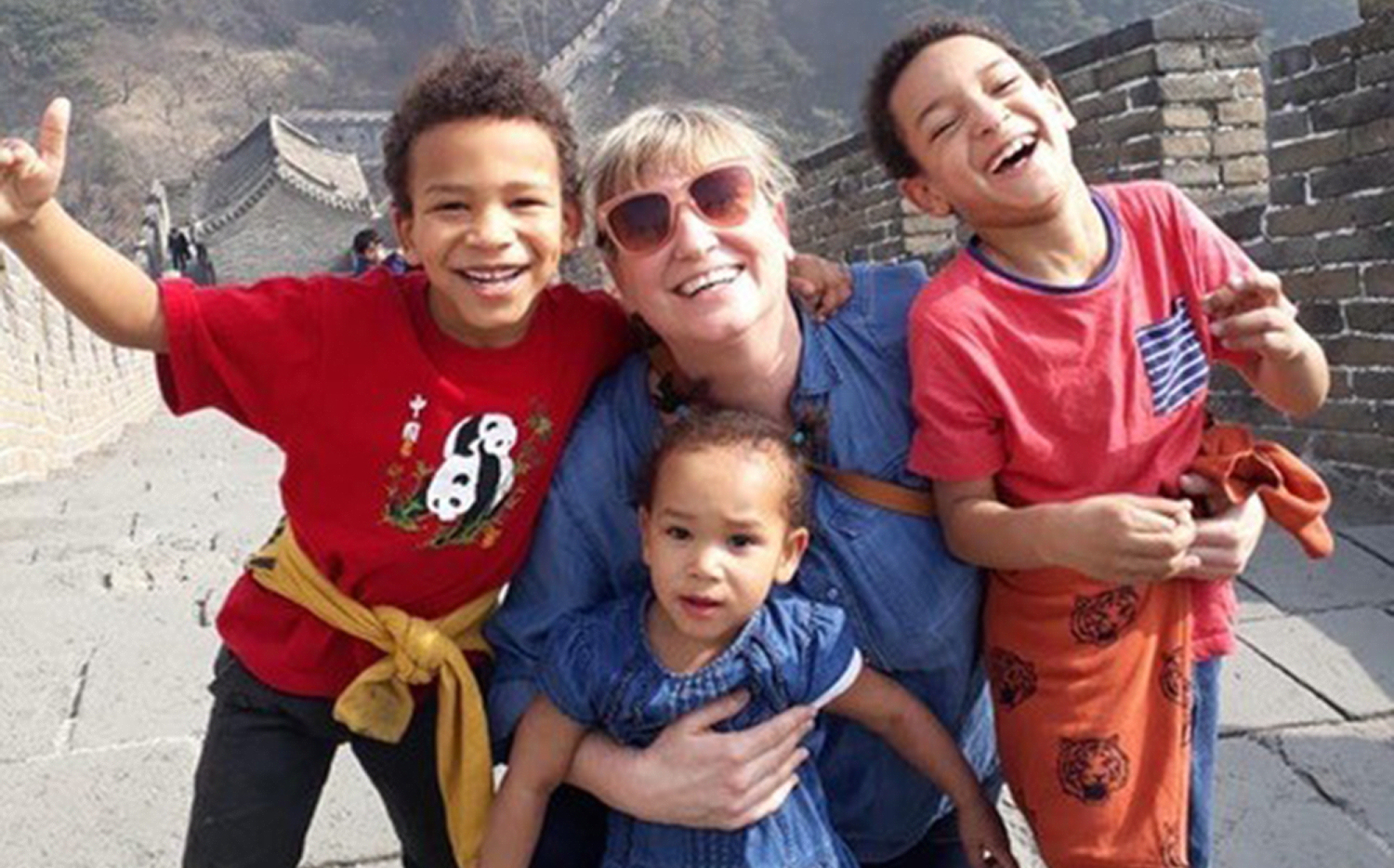'Be unapologetic about your needs.' As part of our work in Scotland, in collaboration with Federation of Scottish Theatre, funded by Scottish Government’s Workplace Equality Fund, we caught up with Choreographer Natasha Gilmore who is a mother to three young children aged between 4 and 10 years, is a single parent and founder of Barrowland Ballet.

I am the Artistic Director of Barrowland Ballet, a dance company based in Glasgow that I set up 12 years ago. The company tours regionally, nationally and internationally.
I am a mother to three young children aged between 4 and 10 years and for the past three years I have been a single parent. Before that their dad was working abroad for most of the time. I am therefore very experienced at juggling my home life with my working life. I have no family in Scotland to help with childcare and have subsequently created a strong network of friends who I can call upon for help.
My dealings with PiPA have been through Saffy Setohy who organised a few meetings for the Scottish arts sector during Lockdown. The work that PiPA does is really important in terms of advocacy and sectoral support. For me, having a support structure that makes me feel less alone is essential.
Be unapologetic about your needs
Being unapologetic about my parenting needs is an important attitude for me to have to enable me to receive appropriate support. When I was pregnant with my first child, I was a freelance dance artist so agreed with companies to have an assistant director role in place to oversee the work. This meant I did not feel under pressure when my son was born. I came back to work when he was a few months old and negotiated a schedule that enabled me to choreograph in the mornings only. The company would then rehearse the sections in the afternoons. If they needed me to come into rehearsals in the afternoon they accepted that I had to bring my baby to ensure I was not away from him for too long.
My key message from this is that, when negotiating a work contract, it is important to clearly outline your needs and “limits” in relation to parenting and child care - and have them agreed before you can accept a job.
It was only when I attended a launch event in Edinburgh to present work along with other artists that I realised my attitude was unapologetic. On the train from Glasgow to the event I bumped into a peer who expressed delight at seeing me with my baby. They said they had rung the organisers in advance to make sure it was ok for them to bring their baby and I remember replying that I would never have thought to ask permission.

I realise, of course, that it is important to be sensitive to the nature of individual events. However a launch event is effectively a social event, therefore, from my perspective “if you want me to be there, then it’s me and my baby”. In relation to most events I would not ask for permission. I have presented several talks with my baby in a sling. I have never thought that I can’t do a talk because I have a baby. My main concern is being able to get my baby to sleep before I give my talk.
I take my children around the world with me. I tour a lot with my company and, if it is appropriate for me, and the right thing for us a family, then my children will come along. I believe it is positive and healthy for us to continuously function as a family unit rather than experience separation due to my working pattern, especially as I am single parent.
Find flexible childcare
The advice I would give to working parents is to find appropriate, flexible childcare. Find someone who will come to you either in your workplace or your home to maximise the benefits for you. The only time I have used formal childcare was when it provided a free nursery place.
I have used artists and friends and have now set up a network that provides an effective structure for delivering mutual support. I understand that finding this kind of network can be challenging especially when it’s for your first child, however it does get easier.
A hard reality is that the majority of what you earn will most likely go on childcare. It is important to identify the care you will need and be OK with it while, at the same time, remembering that it will not go on forever when they go to school. An important bit of advice is to register your children with a council nursery as soon as they are born. I did this with my youngest child and experienced the council nurseries as much cheaper and more effective. However these nurseries usually have long waiting lists.
The challenges
The biggest career challenge for me is the demand on my time in relation to international touring and the associated travel. This area of work brings in good financial rewards for Barrowland Ballet. As Artistic Director of the company I am responsible for the successful staging of our work and the maintenance of high quality production values as it tours.
Given that I have directed the creation of the work I feel the need to be on tour to uphold the company’s reputation artistically and in terms of delivery. This includes maintaining good relationships with partners, promoters and venues. Within this context, I discussed my commitment as a mother with Barrowland Ballet’s board and our key funder. As a result, our touring budgets now build in access costs that include touring costs for my children when required.
There are times when it is not appropriate for me to take my children to events or on tour. I try to avoid them missing school where possible by arranging for their dad to look after them when feasible. Showcase events can include late-night networking sessions. My compromise is to attend for a limited length of time.
Given that my children are at school/pre-school, and I travel a lot, there are opportunities that I am unable to respond to because I have used up all my “childcare time”. This means that I don’t get to do any professional development or take advantage of residential opportunities. I feel there are so many demands on me to consider, especially when the opportunities are non-Glasgow-based.
I don’t get to see as much work as I would like to given that I am working full-time and often tired at the end of the day. I also need to consider the financial implications. It can be very expensive to participate given the cost of tickets and childcare.
Challenges faced by freelance dance artists
Barrowland Ballet is not resourced like a national company but we do offer a maternity allowance. At certain times we have had staff members with children, mainly on the administration side of the business, and the company has put measures in place to support their parenting commitments.
I am aware that many artists change jobs to have a regular salary when they have children. Those that continue to be freelance sometimes have to weigh up taking on a job, as it may not be financially viable once they have costed childcare.
Fortunately my personal experience provides me with a realistic understanding of what to expect of dance artists who may be a parent, e.g I don’t usually work on Saturdays as I have my own children.
I remember feeling vulnerable when I left my oldest child in nursery for the first time. I had taken a job outside Glasgow and was stuck in traffic on my way home. The feeling of panic was overwhelming. “What would happen if I didn’t get back in time?” He was my first child so I didn’t have the networks that I now have with my other two children.
When I toured Australia I took my youngest child with me as she was only 9 months old. The further we went, the more distressed I got with leaving my other two children at home. It was a very stressful time for all of us and was not a great experience for my boys left at home, particularly my oldest son who was having a hard time at school. I could see his vulnerability when we Face-Timed and I felt helpless given that I was so far away and couldn’t do anything about it. By the time I got back he was very depressed.
Since then I have made the decision that my children come with me, and if they miss school, that’s ok. In my eyes, they are still getting an education by visiting different countries and cultures and it’s much better for all our mental health if we are together as a family.
Of late, I have been thinking to make more work involving video installation so that our work can tour without me having to be there all the time.
The impact of COVID-19
Lockdown has been challenging in relation to some aspects of having all three children at home. It has also been good for me given that I have had the financial security of being furloughed and
been able to spend quality time with my children.
I have worked for 10 years full time while fulfilling my parenting duties, only taking six months’ maternity leave with my third child, which felt like a luxury. It took Lockdown for me to recognise the negative impact that “limited time off” has had on my health.
I can clearly see that having “time out” has been good for my general well being. It made me realise I have not been good at self-care. Having time to spend on myself has enable me to feel much healthier and in a better place to look after my home and make it a better space to be in. My dad died recently and Lockdown allowed me time to grieve.
I realise that It’s going to be a challenge when we return to work. My thoughts are “how do we go back to work and retain that period of less stress in our lives”?. In the arts it is difficult to say no.
I feel a big responsibility in relation to securing work for the company, my dance artists, and production teams. The company is in a good place and is gaining a profile both at home and internationally however the pressure lies with how we keep the momentum going.
Any positives to take away from Lockdown?
I have loved having zoom meetings where there have been kids running in and out – symbolizing for me a visual reminder of reality. People are more accommodating and everyone has acknowledged that meetings can happen over zoom rather than in-person meetings. Post-Lockdown, it will enable us to say “I’ll zoom you” rather than having to travel for meetings.
Improving access for parents
I strongly believe we need to improve access for parents in our sector and develop a deeper understanding of what the needs are for practitioners with children. The disability dance sector is a good example of understanding access needs. We should learn from them. An example could be running a professional development workshop where dance artists can bring their kids. It might be distracting but it also has the potential to add something brilliant to the setting - and something we can learn from.
I would like to stress again the importance of being unapologetic about taking children into a work setting. Some places get it. The Work Room is a perfect example and a welcoming space for children. It has a toy box in its break out space with colouring books, paper, and pens. If I am working there I know it is safe and ok to bring them into my workplace. It means I can healthily combine my two lives. Over the years my kids have spent a lot of time in dressing rooms!
I have also successfully combined my personal and professional lives through the creation of intergenerational work. It’s fun and enjoyable as a family to have a shared experience.
What advice would you give other working parents?
Funders need to have more of an understanding and be more sympathetic of parenting and caring needs. Be explicit about what your support needs are. Create and include realistic budgets for your access needs. If you are touring, pay for someone to look after your children in the countries you tour to - I always use personal recommendations. An even better option would be to take someone with you to solely look after your children. I have never managed to do this due to financial restrictions. If we could push for this as a sector and get funders to understand it as an access need much like a dancer with a disability will travel with a PA, then it would allow us to embrace access in its true sense.
